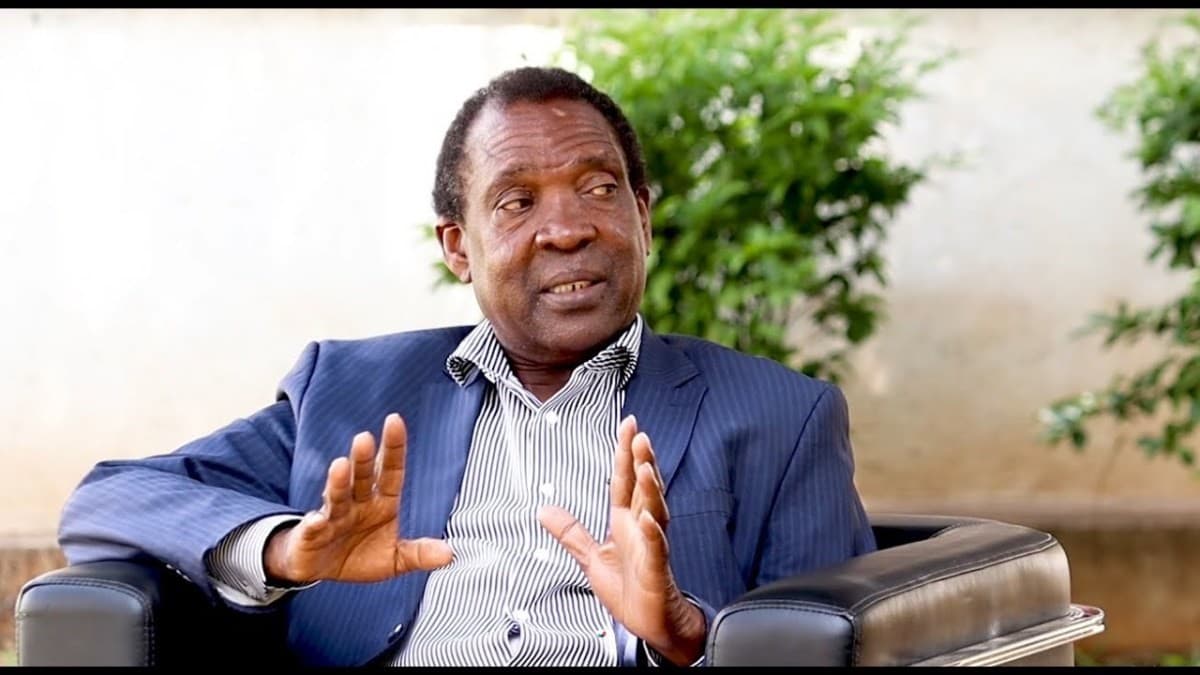We're loading the full news article for you. This includes the article content, images, author information, and related articles.
Renowned political analyst Herman Manyora posits that a presidential run by Wiper leader Kalonzo Musyoka presents a unique strategic challenge to President William Ruto, forcing a recalculation of the 2027 electoral map amid shifting alliances and economic discontent.

NAIROBI - As Kenya's political landscape steadily pivots towards the 2027 General Election, prominent political analyst Herman Manyora has asserted that a presidential bid by Wiper Patriotic Front leader Kalonzo Musyoka is a source of significant strategic concern for President William Ruto. Speaking on his popular YouTube channel on Friday, November 8, 2025, Manyora argued that Musyoka's candidacy introduces a dynamic that could potentially unite a fractured opposition and challenge the President's re-election bid in ways other contenders cannot. "It more than anything else confirms... that Kalonzo one is going to be the flag bearer for the United opposition [and] two, he has superb chances of beating William Ruto," Manyora stated, highlighting the Wiper leader's growing influence and strategic alliances as key factors.
This analysis comes as Kalonzo Musyoka formally rebrands his political approach. On October 10, 2025, during a packed National Delegates Conference at Uhuru Park, Musyoka accepted his party's nomination for the presidency. In a fiery speech, he positioned himself as a moral alternative to the current administration, which he accused of fostering "bottomless corruption and top-down greed." He unveiled a platform focused on creating a 24-hour economy, lowering the cost of living, ending police brutality, and restoring integrity in governance. His party was also renamed from the Wiper Democratic Movement to the Wiper Patriotic Front, a move aimed at broadening its national appeal, particularly among younger voters disaffected by the political establishment. This rebranding is not merely cosmetic. Musyoka has been actively forging new, and reinforcing old, political alliances. Most notably, he has engaged in public displays of unity with former Deputy President Rigathi Gachagua. The two have openly discussed plans to combine their respective Ukambani and Mt. Kenya vote bases, a formidable bloc they estimate at a starting point of 12 million votes. "Mr Gachagua and his team can mobilise about 8 million votes. I and my team can mobilise 4 million votes," Musyoka stated at a joint event in Murang'a County on Saturday, November 2, 2025. This courtship of the Mt. Kenya region, a critical swing bloc, includes outreach to the GEMA cultural association, which has praised Musyoka as a "unifying leader."
The political maneuvering is set against a backdrop of significant economic pressure on Kenyan households. According to a report by the Kenya National Bureau of Statistics (KNBS) released in early November 2025, the inflation rate for October 2025 stood at 4.6%, driven primarily by an 8.0% rise in the cost of food and non-alcoholic beverages over the preceding year. While this is a decrease from previous highs, the sustained pressure on essential goods continues to fuel public discontent. This sentiment is reflected in recent polling data. A survey conducted by Trends and Insights for Africa (TIFA) between August 23 and September 3, 2025, found that 64% of Kenyans oppose the President's broad-based government arrangement with parts of the former opposition, with only 32% supporting his re-election in 2027.
President Ruto's allies have responded to Musyoka's rising profile with a dual strategy of public courtship and sharp criticism. On one hand, there is a concerted effort to woo the Wiper leader into the government's fold. UDA National Organising Secretary Vincent Kawaya, speaking in Musyoka's Mwingi North backyard on Friday, October 3, 2025, urged him to "choose development over isolation." This narrative frames the Kenya Kwanza administration as the sole vehicle for regional development, a message President Ruto himself echoed during a tour of Ukambani in mid-November 2025. On the other hand, these same allies are attempting to undermine Musyoka's credibility within the opposition. Speaking in Malindi on Saturday, October 12, 2025, MP Vincent Kawaya claimed that other opposition leaders are merely "using him as a political pawn," knowing President Ruto is unbeatable. This line of attack aims to sow discord within the opposition and portray Musyoka as a leader destined to fail. Some government figures, like Labour Cabinet Secretary Alfred Mutua, have gone further, accusing Musyoka of deliberately keeping the Ukambani region underdeveloped to maintain political control—a charge Musyoka's allies vehemently deny.
While Manyora sees a clear threat to the incumbent, other analysts remain cautious. Dr. Michael Ndonye, for instance, has expressed doubt that Musyoka will ultimately be on the presidential ballot, suggesting his strength lies more in being a "dependable public servant" within a government structure. Musyoka's own political history, marked by past alliances and accusations of indecisiveness, presents a hurdle he must overcome to convince a national electorate. However, his firm declaration that he will not play second fiddle in 2027 signals a new resolve. The success of his candidacy will hinge on his ability to consolidate the fragmented opposition, translate his regional alliances into a truly national movement, and convince Kenyans that his "Patriotic Administration" offers a viable alternative to the current government. With the election still two years away, the political chess match is intensifying, and Kalonzo Musyoka has firmly positioned himself as a kingmaker, if not the king himself.
Keep the conversation in one place—threads here stay linked to the story and in the forums.
Sign in to start a discussion
Start a conversation about this story and keep it linked here.
Other hot threads
E-sports and Gaming Community in Kenya
Active 9 months ago
The Role of Technology in Modern Agriculture (AgriTech)
Active 9 months ago
Popular Recreational Activities Across Counties
Active 9 months ago
Investing in Youth Sports Development Programs
Active 9 months ago
Key figures and persons of interest featured in this article